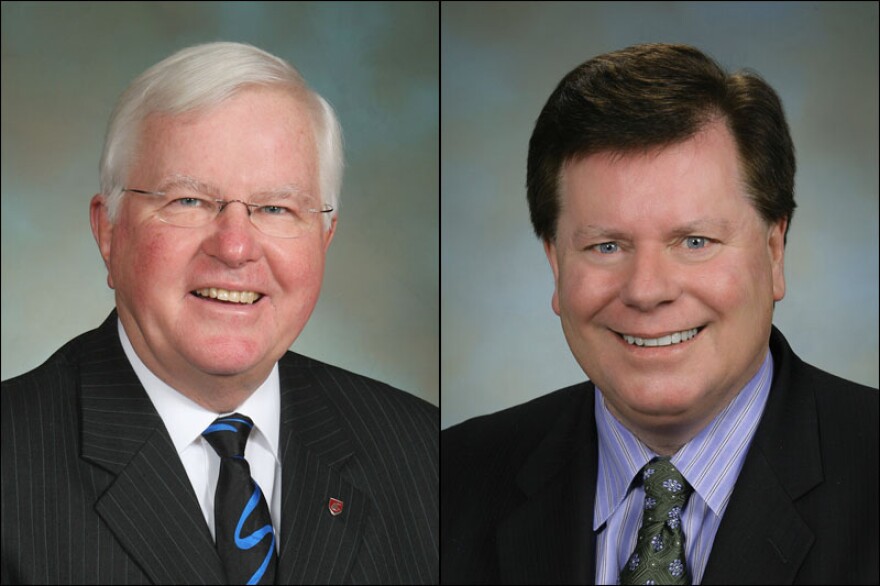Washington state has strict campaign contribution limits. But candidates and political donors are experts at finding ways around those caps.
One way they do this is through a practice called surplussing.
Washington’s primary election was on August 5. Two days later, large checks started arriving in the campaign coffers of the House Democratic Campaign Committee also known as the HDCC.
The biggest check -- $80,000 -- came from Speaker of the House Frank Chopp. By the end of that day, the HDCC had received some $800,000 from its own members.
State Representative Sam Hunt saw that money and had one thought. “We all get on a plane and go to Tahiti,” he joked.
’It’s kind of like a sport’
Hunt, the-chair of the House Democrats’ campaign committee, said that money arriving like clockwork was all part of a master plan. He even showed off a the memo that goes to House Democrats. It instructs them on how and when to surplus left over campaign dollars after the primary.
“Frankly, we tell them raise as much as you can,” Hunt said. “Raise it legally, report it and surplus it, give us a check.”
Republicans do it too. August 13 was a big day for the House Republican Organizational Committee. HROC, as it’s known, took in nearly $500,000 that day in surplus funds. House Republican Leader Dan Kristiansen was the biggest contributor. He wrote a six-figure check.
State Representative Cary Condotta, who coordinates surplus giving for HROC, said surplussing is about team spirit and competitiveness.
“Actually it’s kind of like a sport to some effect, I mean we’re both trying to out maneuver the other and all the members are trying to raise money for the collective,” he said.
A common practice
Surplussing is a common practice throughout the country. So far this year in Washington legislative candidates have surplussed more than $2 million to party and caucus committees.
Here’s how it works: the most you can give a statehouse candidate is $1,900. But if you have more to give, you can contribute to a bunch of statehouse candidates. The ones who don’t need the money can turn around and surplus to the caucus. The caucus can then spend tens-of-thousands of dollars on the critical races.
Caucus committees have a much higher contribution limit than individuals donors do.
“It just increases our leverage on the amount of money that we’re able to raise and spend in this evil system of money-driven politics,” Hunt explained.
For the record, Hunt would prefer publicly-funded campaigns.
But is it really legal?
If you’re thinking the surplussing game sounds questionable, you’re not alone. Can they really do this?
“You know as long as someone isn’t out there actively to circumvent contribution limits it’s all legal,” said Lori Anderson from Washington’s Public Disclosure Commission.
But what does “actively circumvent” mean? Here are the rules. If you’re a donor you can’t earmark your contributions for a specific candidate. And if you’re a candidate you can’t raise money solely for the purpose of surplussing it.
But Hunt said sophisticated political donors know the deal.
“They understand that you’re raising money so you can surplus it to the caucus so you can help your other members get elected or re-elected.”
Hunt thinks it’s a good thing that candidates can’t surplus directly to each other in Washington. And Republican Condotta notes all this moving around of money does get reported.
“Everybody knows what the game is, it’s been done for years, I don’t think there’s ever been an issue with it,” he said. “I think it’s more than fair.”
After the November election there will be another round of surplussing. That money will help keep the lights on and the staff paid at the campaign committees until the next election.
And pay for any recounts in close races.


